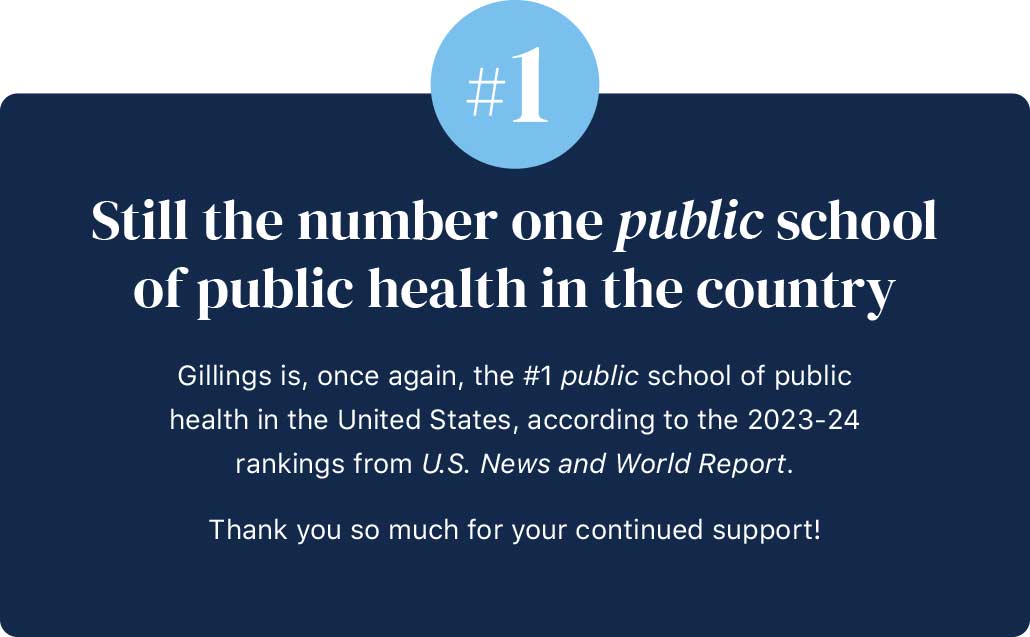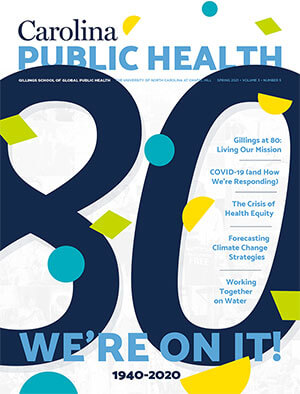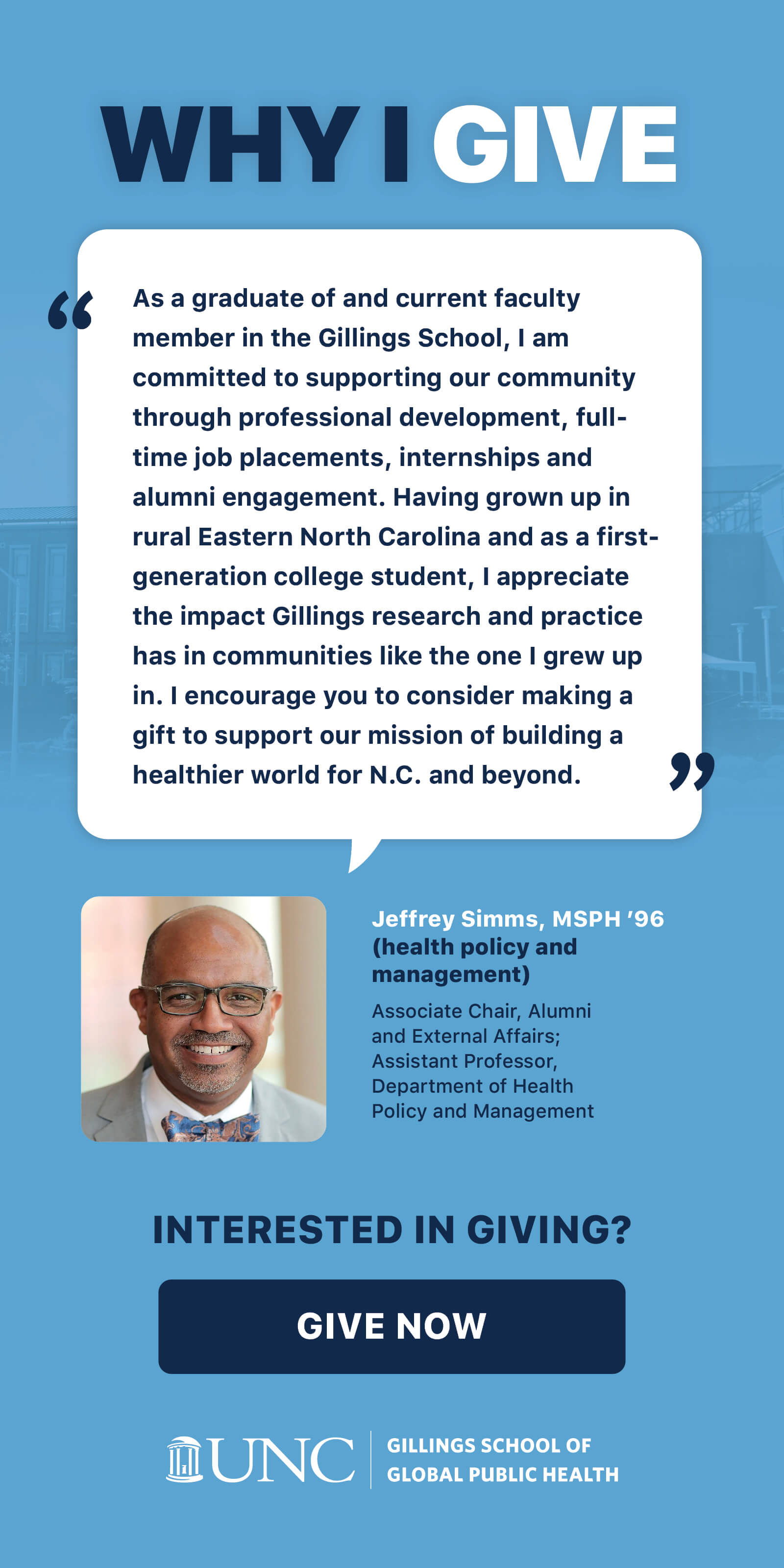CZI, Google.org grants support COVID-19 research at Gillings
Two grants totaling more than $900,000 will boost Gillings researchers’ efforts to address COVID-19.
Two grants totaling more than $900,000 will boost Gillings researchers’ efforts to address COVID-19 – one funding key lab equipment and another supporting a study of how genetic changes may affect risk of severe illness and death.
Researchers in the lab of Ralph Baric, PhD, William R. Kenan Jr. Distinguished Professor of epidemiology at Gillings, are on the forefront of developing COVID-19 treatments. They aided in preclinical trials of the antiviral drug remdesivir, which speeds recovery from COVID-19.
A $433,000 grant from the Chan Zuckerberg Initiative, a philanthropic organization founded by Priscilla Chan, MD, and Mark Zuckerberg, funded a new robotic arm for Baric’s lab that can pipette fluids much more quickly and accurately than humans can, along with a robot that detects active virus particles and an RNA-sequencing machine, which increase the rate of testing compounds by 20-fold and accelerate the development of effective treatments.
“This equipment will make it easier to do the experiments necessary to verify that the vaccines and therapeutics generated by others are efficacious and safe, and it will ultimately save hundreds of thousands of lives,” said Rachel Graham, PhD, assistant professor of epidemiology.
A $500,000 grant from Google.org supports a Gillings-Vanderbilt University study analyzing blood samples from a cohort originally established to study chronic diseases among Mexican-Americans in Texas. Some of the 4,000 cohort participants were infected by SARS-CoV-2, allowing researchers to use artificial intelligence to compare blood samples from before and after infection to look for gene expression changes that may be due to the virus.
“This study is unprecedented,” said principal investigator Kari North, PhD, Gillings professor of epidemiology. “The identification of changes in gene expression associated with COVID-19 infection and severity will contribute to global knowledge on the biology of SARS-CoV-2.”





